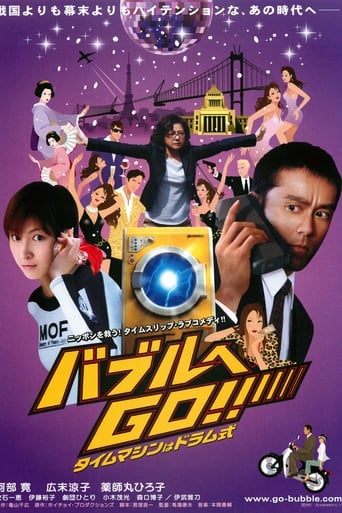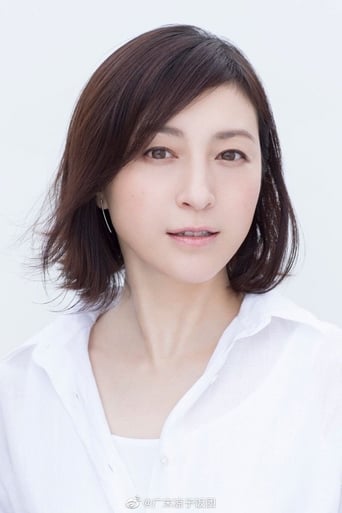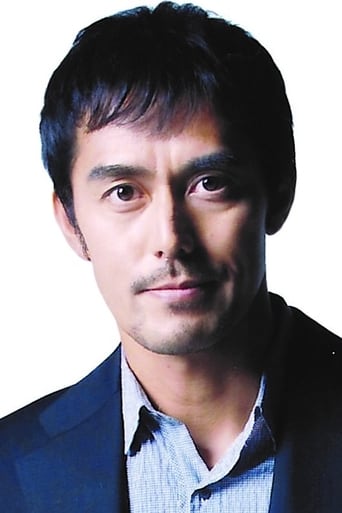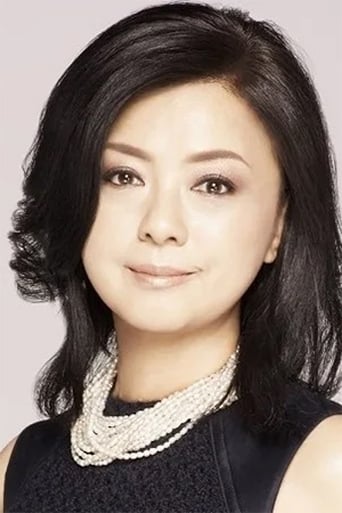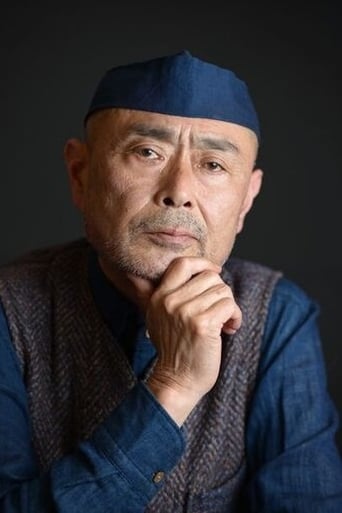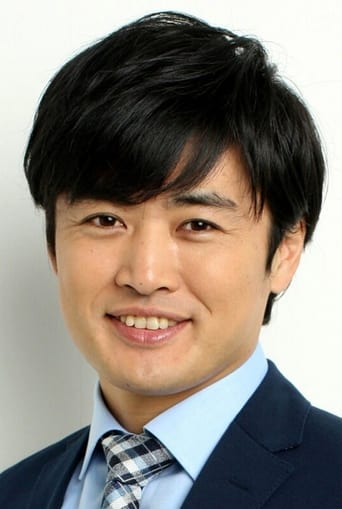It's 2007 and the Japanese Ministry of Finance have calculated that the economy will collapse in two years' time. They intend to prevent this by sending home appliance designer Mariko back in time 17 years using a time machine she accidentally invented. However, things don't go as planned and Mariko's daughter, Mayumi, is also sent back to find her mother and save Japan's economy.


Reviews
Cheerfully surprised at this extremely cute time-travel-to-save-Japan Toho offering. The best surprise was the introspective look at Japan's "lost decade" due to over-speculation in real estate. Interestingly, this film comes out just before America's "banking and real estate crisis," and if the film has any insight, that American event could easily be called manipulated also. Having lived through it, Paulsen especially worked with swift rigid detachment that smacked of both collusion and human disinterest. ANYWAY, back to the movie.The leads are wonderful, mugging and shining. The plot takes several twists and turns that are indeed reminiscent of Spielberg's BACK TO THE FUTURE. The humor works, though sometimes it's a bit silly. Take some time off and watch this delightful little film.
It's no coincidence that just as the perception of the breakdown of family and traditional roles led to nostalgia for Jidai-geki period costume dramas a few years earlier, the mid-to late 2000s similarly saw a surprising amount of time-travel films in Japanese cinema. It was as if the desire to escape from the current period of economic uncertainty and social upheaval was so strong that the only way to restore a sense of order and pride in the nation was to really literally go back in time.Some of these films, like Katsuyuki Matohiro's Summer Time Machine Blues (2005) used the idea simply as an excuse for comic adventure, while others like Metro Ni Notte (2006) exhibited a disturbing escapist longing to not only turn back the clock and seek refuge in an idealised version of the past, but expressed an almost wish-fulfilment desire to trace the roots of the malaise and actually alter events - and even the outcome of the war - so that the crisis in the future might never happen. Yasuo Baba's 2007 timeline shifting comedy Bubble Fiction: Boom or Bust, manages however to indulge a bit of nostalgia for the style, music and attitudes of the decadent profligacy of the 1990s boom period in a way that put the seismic cultural shift that has occurred in the intervening period into stark relief, while at the same time finding a very humorous way to point out exactly where it all went wrong.Mayumi Tanaka, is a not terribly bright nightclub hostess who is in mourning for her recently deceased mother and in grave financial difficulties, her boyfriend having skipped town, leaving her with a huge debt to pay off the local criminal loan sharks. Mayumi is not the only person with financial problems in 2007 however. The whole Japanese nation is on the brink of complete economic meltdown and - strange as it may seem - Mr. Shimokawaji, an official from the Ministry of Finance believes that the debt and grief-stricken Mayumi could be the saviour of the nation. But what is it about a photo of her mother Mariko in an old newspaper from 1990 that interests the government official so greatly and leads him to put his faith in Mayumi? Well, it's just that her mother looks exactly the same in the 17 year old photograph as she did a week ago when she "died".Mariko, it seems has stumbled upon a time machine while working on research and development of household appliances. Having converted a washing machine into a time machine, Mariko has taken it upon herself to skip back to 1990 to try to convince Mr Serizawa, a prominent minister in the Japanese government, not to make a crucial announcement about new property legislation and banking deregulation that will end up causing so much damage to the Japanese economy of the future. Mariko has disappeared however, clearly without having achieved her goal, and only her daughter has the necessary family connection and right shape and size, if not the brain cells and financial acumen, to go back and help complete the mission which will not only erase Japan's debt, but also the 2 million yen that the loan shark is pressuring her for. That's the kind of motivation Mariko understands.The science of building a time machine then is a little bit fuzzy - detergent is added to the washing machine, just in case - but obviously, there's quite a bit of intentional humour in the treatment here that helps the rather more serious questions to come out in the wash, so to speak. With the impact of the economic crisis an unpleasant reality for many, there is certainly some amount of wishing to turn back the clock involved here, but the film is under no illusions about what really is the underlying cause of the banking meltdown. And, no, despite what we've been lead to believe, it's not all Gordon Brown's fault. While the film has considerable fun with 1990's styles, at the fashion and the thickness of women's eyebrows, glamorous discos and mobile phones the size of bricks, Bubble Fiction: Boom or Bust's funny conspiracy theory action drama actually makes it quite clear who is to blame for spending us into a debt crisis. We all are.Maybe I'm just getting older then, but when exactly did 1990 become a year to get all nostalgic about? Bubble Fiction does well however to capture the heady decadence of the time in the "period detail", with some cultural references that are specific to Japanese culture and celebrities, but with music, style and attitudes and extravagant spending that will be recognisable to everyone. But were men back in 1990 really such lecherous and sleazy operators as Shimokawaji, the official from the Ministry of Finance? Actually, don't answer that one...Bubble Fiction: Boom or Bust does inevitably stretch credibility as much as any film that meddles with time-travel high-jinks and alternative timeline paradoxes, throwing a good global conspiracy in there for good measure, and it does draw what seems to be a rather simplistic moral platitude out of the resolution (Work hard and look after your family), but in reality it actually has a good point to make, and it does so in a clever and often very funny way. And after all they've been through, who can deny them a little bit of wish fulfilment.
I will try to refrain myself from giving out any spoilers...The movie is about a time machine and going back in time to save the Japan's economic crisis, as well as the mother (Hiroko Yakushimaru) of the main character (Ryoko Hirosue). The time machine in "Back To The Future" was heavily-modfied De Lorean, but in this movie, it is a washing machine from Hitachi!The movie has values as a modern history study of Japanese culture, in 1990. Do not miss it!PS: if you like this film, try other films directed by Yasuo Baba as well. You'll love those!
It was an amazingly wonderful movie. You must see it a hundred times.This movie is about the time travel to the 1990 in Japan, where Japan had the Bubble economy. The Bubble economy started in the late 1980s and lasted until the early 1990s. During the period, people spent as much money as possible, it was very easy to get a job like students chose a company unlike companies choose students now, workers' salary was very high, young girls' fashion was very unique. Ex. they had long black hair and their hair was the same length. It was called Wanren. They didn't put layers. At first, they had no bangs, but later they started to put a few pieces of bangs down and curled the rest of bangs backward and some girls got a very fine curly perm. Female players wore a very tight dress that emphasizes their body line called Body-con. Young people liked going to a disco. There appeared boys who pick up and drop off girls and had no more progress than that. They were called Asshee. The dessert, Tiramisu was popular at that time. Talking about this movie, it's set on March 2007. In the movie, Japan has a financial crisis like it has 800 trillion yen debt. One guy(Hiroshi Abe) who works for the Finance Ministry asks the daughter(Ryoko Hirosue)of the inventor(Hiroko Yakushimaru) of the time machine to go to the 1990 to save her mother, who hasn't come back to the present and stop the breakdown of the Japan's bubble economy. It's a comedy. I laughed a lot. And, some TV personalities such as Ai Iijima, Naoko Iijima, Akiko Yagi, Hiroko Moriguchi, Ramosu Rui act themselves at that time. Communication gap between a girl from 2007 and people in 1990: 1.Club: it means a place to dance and drink now, but in 1990, it meant a hostess bar. 2"....nakunai?: people in 1990 were confused wondering it has a positive or negative meaning. 3."Yabai": it's used to mean very good among young people now, but people in 1990 thought it was a bad meaning. 4. Hirosue from 2007 said to Abe in 1990, " I will call you when I get to the station" It's a natural conversation now because we have a cellphone, but people in 1990 didn't have a cell phone, so when they met up with someone, they had to set a specific meeting place. Differences in fashion: Hirosue(from 2007) said to the girl(Kazue Fukiishi) in 1990 mentioning her fashion. 1."Mayuge Futo! (Your eyebrow is very wide and hairy!) 2."Fiku Pitapita!(Your clothes is too tight!) 3."Dasa! Sono Buatsui Pansuto!"(Your stockings are too thick and not cool!)During the Bubble economy, I was little, so I didn't remember or know about it very well, but I've heard of it on TV or something, so when I saw this movie, I felt kind of nostalgia. I want to know more about the society in the bubble economy. If you experienced that age, please tell me what you remember about it.
